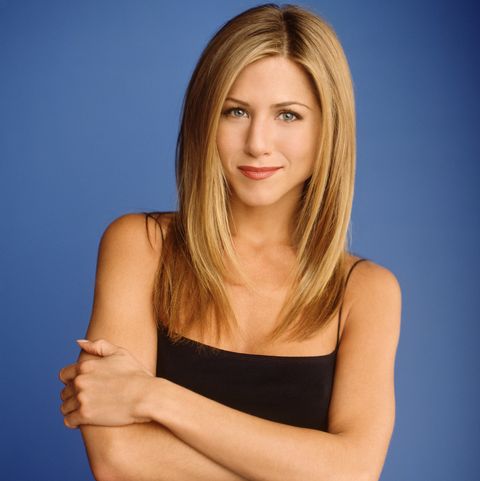Public figures have less protection against invasion of privacy than private individuals. This is because public figures have voluntarily made themselves a topic of public interest, and therefore, they have a reduced expectation of privacy. But why did Ushna Shah think otherwise?
Ushna Shah lashed out at her followers for commenting on her Indian-style wedding dress, the event and her dancing. And this has been happening very often now. Celebrities not being able to take criticism from people who made them stars.
Ushna, meanwhile, took time out of her biggest life event to respond on social media (and why wouldn’t she?). “Mrs Amin, to those who have a problem with my dress: you weren’t invited, nor did you pay for my shade of red. My jewellery, my jora (my wedding outfit): purely Pakistani. My heart, however, half-Austrian. Allah humein khush rakhey aameen (May God keep us happy),” she wrote.
Dear Ushna, one can use dual nationality to escape countries, but dual nationality cannot save you from criticism. Especially when you are praised and celebrated in one country and are a nobody in the other. Its a shame that you couldn’t invite people who made you, its not something to be proud of in Pakistani culture. Because you’re half Austrian you might not know.
But if you were completely-half-Austrian you would know that roasting celebrities is completely legal and you would’ve accepted it with a heart. And yes, you got your jewellery and jora because of your celebrity status in Pakistani media. It might be shocking but true, you just can’t enjoy Pakistani airtime and paratroop into Austrian air-space when the shit hits the fan.
Have you seen the amount of garbage politicians receive under just one tweet? This is the point at which our politicians (all of them) suddenly seem bigger people by heart. They bear the brunt of criticism from dawn to dusk, left to right, from sense to nonsense.
What other fraternity present themselves for such intense scrutiny? Religious groups? Establishment? Bureaucracy? Judiciary? Business Leaders? How many times have you seen these people on TV sitting through barrages of questions? A politician is trained to be answerable to the public, how ever it is. The rest just take the good things from the public and the bad things they throw back in their faces.
Amongst these people the most misled are our showbiz celebrities, especially the new ones. It’s ironic to see these youngsters gaining all their momentum for their career from social media (a public medium) and then going back and giving people hate if they criticize them.

Our politicians are pretty familiar to how free speech works. See, if you thrive off of praises of the people, you should have the heart of taking criticism from the same people. Remember when you sign-up for a public life, the laws change for you.
Criticism of celebrities is generally considered to be a part of the public discourse in developed countries. While celebrities are often admired and celebrated for their talents and accomplishments, they are also public figures who have chosen to put themselves in the spotlight, often for financial gain or to promote their work.
So, they are subject to a higher degree of scrutiny and criticism than the average person. This criticism may take many forms, from commentary on their behavior and personal lives to analysis of their work and performance.
While criticism of celebrities can sometimes be harsh or unfair, it is generally seen as acceptable because celebrities have chosen to be in the public eye and are often well-compensated for their work. Also, criticism serves as a form of accountability, encouraging celebrities to behave ethically and to use their platform for positive change.
There are many Hollywood stars who have been involved in high-profile legal battles related to criticism, freedom of speech and other issues. Here are a few examples:
Michael Douglas and Catherine Zeta-Jones wedding:
 In 2003, Michael Douglas and Catherine Zeta-Jones sued Hello! magazine for publishing unauthorized photographs of their wedding. While they won the initial case, the ruling was later overturned on appeal, with the court ruling that the couple had only a limited expectation of privacy as public figures.
In 2003, Michael Douglas and Catherine Zeta-Jones sued Hello! magazine for publishing unauthorized photographs of their wedding. While they won the initial case, the ruling was later overturned on appeal, with the court ruling that the couple had only a limited expectation of privacy as public figures.
Jennifer Aniston topless pics:

In 1998, Jennifer Aniston sued “Celebrity Skin” magazine for publishing topless photographs of her that had been taken without her consent. However, the case was dismissed, with a judge ruling that Aniston’s right to privacy was outweighed by the public’s interest in the photographs.
Jennifer Lawrence mobile hack:

In 2014, a hacker gained access to private photos and videos of several female celebrities, including Jennifer Lawrence, and posted them online. The incident, known as “The Fappening,” sparked widespread outrage and prompted several of the affected celebrities to sue for invasion of privacy. However, some of the cases were ultimately dismissed, with judges ruling that the celebrities had failed to show that the leaks had caused them significant harm.
Gigi Hadid vs Paparazzi:

Model Gigi Hadid sued a paparazzo in 2018 for invasion of privacy, after he allegedly posted a photo of her on Instagram without her permission. However, the case was dismissed, with a judge ruling that the photographer’s First Amendment rights protected his right to post the photo.
In the United States, for example, the First Amendment of the Constitution protects freedom of speech, including the right to criticize public figures such as celebrities.
For example, public figures have a higher threshold to meet when bringing a defamation lawsuit, as they must prove that the statement was not only false but also made with actual malice or reckless disregard for the truth. This means that individuals are generally free to express their opinions about public figures, as long as they do not make false or defamatory statements that harm the person’s reputation.
Invasion of privacy: is a legal concept that protects individuals from unwanted intrusion into their private lives. While celebrities are often in the public eye, they still have a right to privacy. Invasion of privacy has four subcategories: intrusion upon seclusion, public disclosure of private facts, false light, and appropriation of name or likeness.
Intrusion upon seclusion involves a physical or electronic intrusion into a person’s private space, such as their home or personal communications. Public disclosure of private facts involves the public revelation of embarrassing or private information that is not newsworthy.
Ushna Shah Claims Many People in the Film Industry are “Fraud”
Trolling can be legal or illegal depending on the specific behavior involved. In general, individuals have the right to express their opinions and engage in online discourse, even if their comments are critical or provocative.
However, if the behavior crosses the line into harassment or other illegal activities, it can become subject to legal action.


